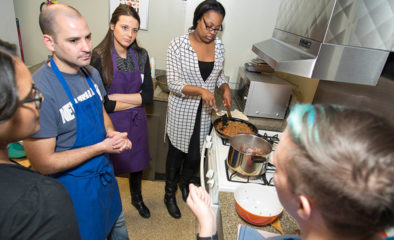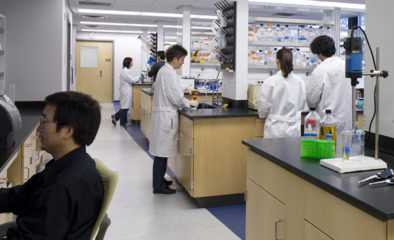Still wondering what an MS in nutrition can do for you? We’re here to answer your questions.
-

Giamila Fantuzzi
Examining the role body messages play in the physiology of health as well as in the pathology of various illnesses
-

Carol Braunschweig
Shedding light on the role of nutrition support in critical illness
-

Krista Varady
Researching the efficacy of alternate day fasting for weight loss and cardio-protection, author of The Every Other Day Diet




